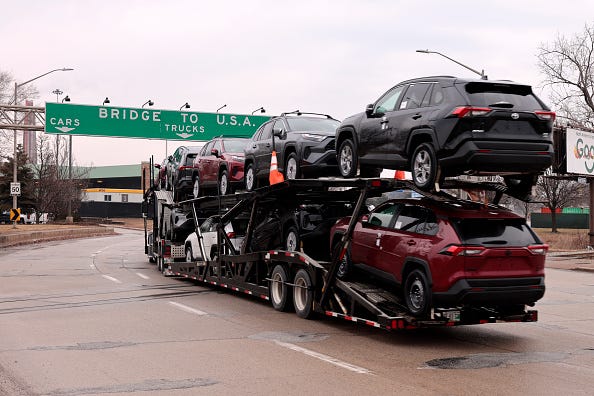
Buffalo, N.Y. (WBEN) - Automotive reporter Jeff Gilbert says there was a sigh of relief in Detroit Monday when President Trump paused tariffs for Canada and Mexico. But he added, "there was also the question of are we going to go through this again in another month when the 30 days runs out?"
Carmakers have been making contingency plans. They knew tariffs were a possibility. Gilbert, who works for WWJ in Detroit and CBS News, explained to WBEN that this will give them a little more time to bring parts and vehicles across the border and stockpile them, just in case.
Talk of a trade war is reinforcing exactly where vehicles are made and how parts are sourced from all over the world.
"A Chevy Blazer, an all American vehicle, is made in Mexico. A GM Pickup truck could be made in Mexico, the US or Canada. Ford's Maverick is also made in Mexico. And sometimes parts go across the border several times before they get into a finished product," said Gilbert.
What impact would tariffs have on new cars? Gilbert said it's hard to tell whether it would add to the price of a new car or whether it would cut into automaker's profits and earnings because there is already an affordability issue.
"Carmakers don't have a lot of room to raise prices. If they raise them too much, it will slow down car sales and that could have a ripple effect on
employment."
As far as inventory is concerned, automakers have built up inventories after the chip shortage during COVID. "What they're trying to do now, is get any vehicle that has been made, in Canada or Mexico, across the border as soon as possible so you don't have to pay a tariff on it. But that's not always easy to do because there are not a lot of trucks and rail cars sitting around."
